Essential Strategies for Assisting a Loved One in Healing

Helping a loved one navigate the complex journey of detox and rehabilitation can be challenging yet rewarding. It requires patience, understanding, and informed support. This guide provides comprehensive insights into how you can effectively support someone during this critical period, emphasizing safety, communication, emotional encouragement, and ongoing care.
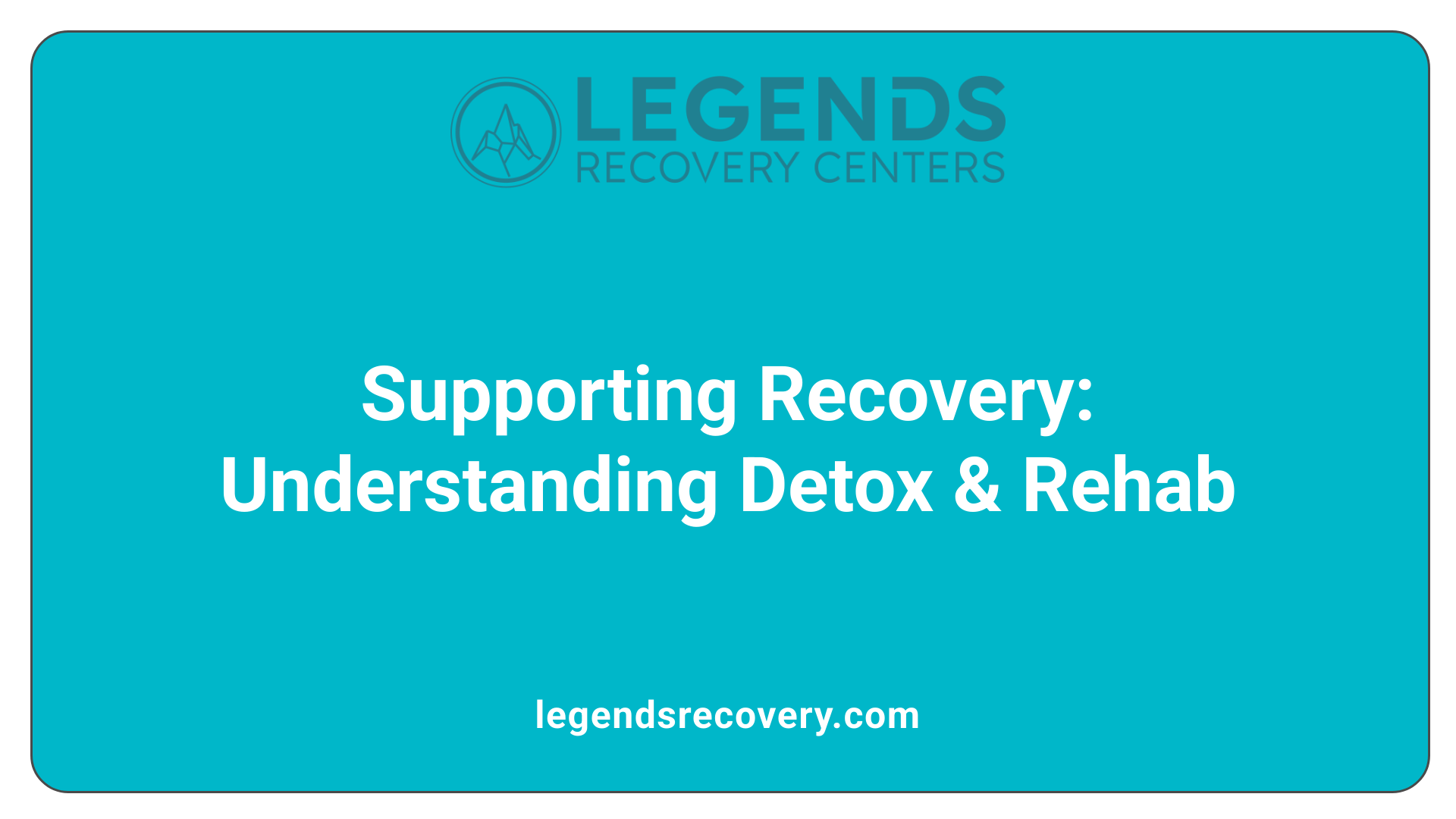
Supporting someone through detox and rehab starts with understanding what the process involves. Detoxification, or detox, is the initial step where the body removes alcohol or drugs. This stage can involve withdrawal symptoms like anxiety, nausea, sweating, irritability, and in severe cases, seizures or hallucinations. Because withdrawal can be dangerous, professional supervision is crucial. Medical detox programs provide safe environments with healthcare professionals managing symptoms and providing necessary medications.
Encouraging the individual to seek help from health professionals is essential. You can assist by creating a supportive, stress-free environment, helping with hydration, nutritious meals, and providing comfort. Patience and empathy are vital as relapse can occur and is part of the recovery process.
Post-detox, continued treatment like counseling, support groups, and outpatient programs help maintain sobriety. You can support by organizing and encouraging attendance at these services, and by maintaining open, non-judgmental communication.
Your role also involves building a strong support network for yourself, which may include counseling or joining support groups for family members. This helps you stay resilient and better equipped to support your loved one.
Remember, professional help from resources such as SAMHSA’s National Helpline can connect you to local treatment options and support services. Your support and understanding are vital in helping your loved one achieve and sustain recovery.
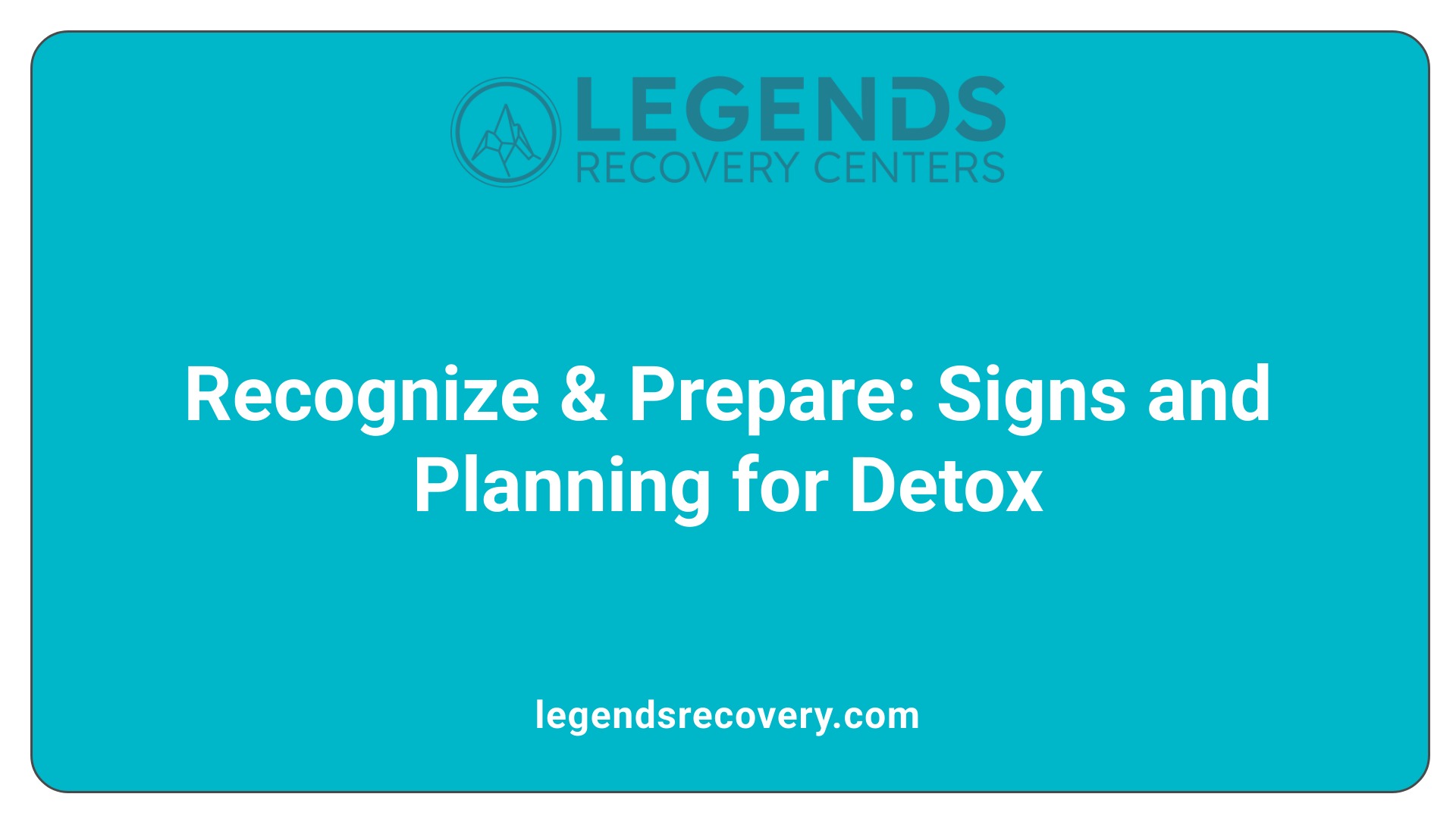
Supporting a loved one through detox and rehab involves understanding the process and being prepared to assist effectively. Physical signs that indicate the need for detox include symptoms like tremors, nausea, sweating, fatigue, and seizures in severe cases, especially with substances like alcohol or benzodiazepines. Psychologically, signs such as anxiety, irritability, mood swings, insomnia, or intense cravings also point to the need for medical supervision during withdrawal.
It is crucial to consult healthcare professionals before beginning detoxification. Medical supervision ensures that withdrawal symptoms are managed safely, especially since severe cases can be life-threatening without proper treatment. Professional support can include medications, monitoring vital signs, and emergency care if needed.
Preparing the home environment for detox is equally important. Remove all alcohol and drugs, and replace them with positive, calming items like soft lighting, relaxing scents, or comforting objects. Ensuring a quiet, stress-free space helps reduce triggers and manage cravings.
Support during this time involves more than physical safety. Be emotionally available, patient, and encouraging. Help with hydration, nutritious meals, and comfort measures, and avoid enabling harmful behaviors. Staying informed about the detox process through trusted sources like SAMHSA’s National Helpline or credible health websites can further empower you.
Creating a supportive environment and understanding what to expect can greatly enhance the chances of successful detox and ongoing recovery. Remember, ongoing treatment, counseling, and support groups are vital for sustaining sobriety beyond the initial detox phase.
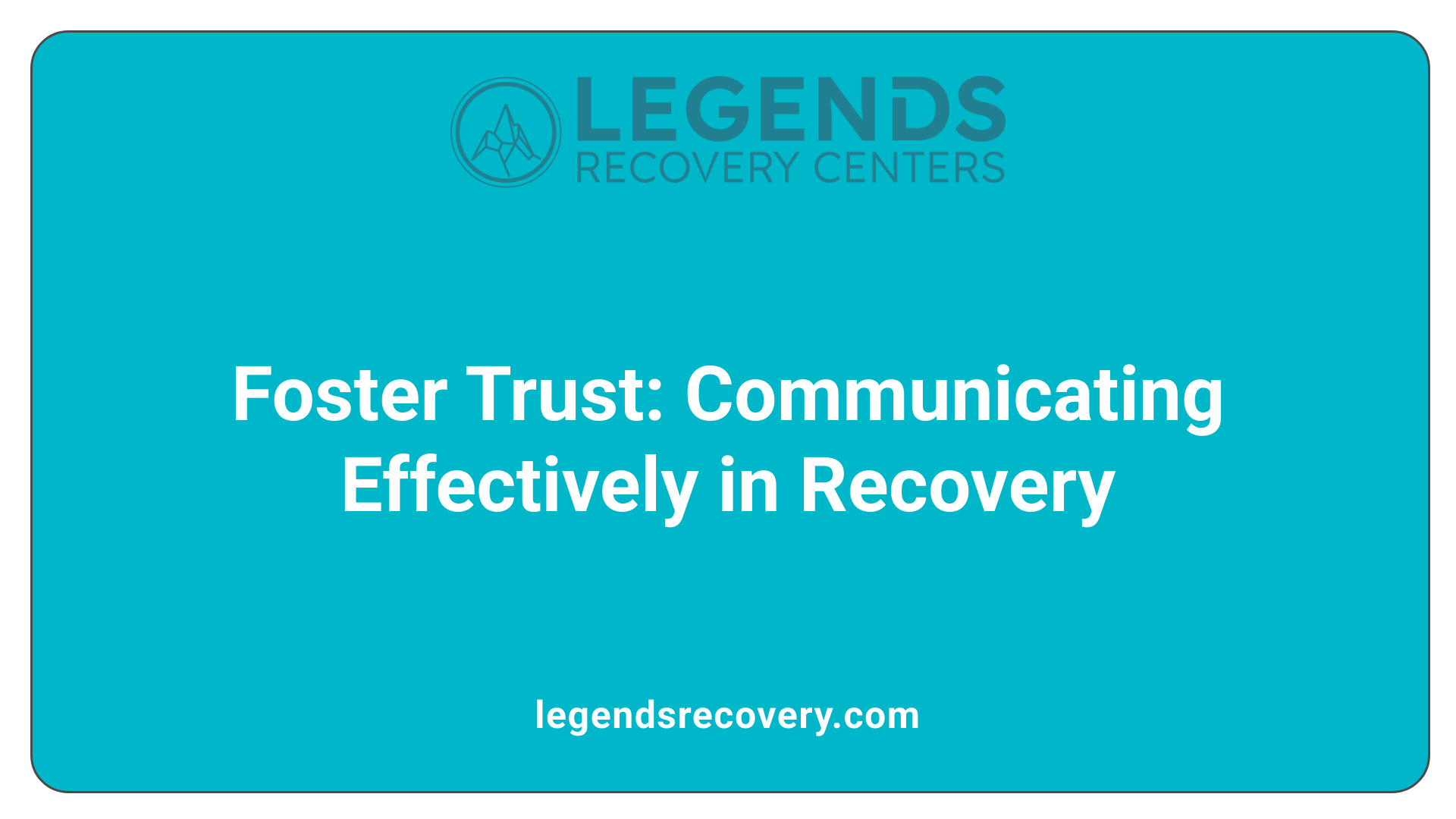
Supporting someone through withdrawal can be challenging, but proper communication plays a vital role. The first step is encouraging them to seek professional medical advice, as withdrawal can be serious and sometimes life-threatening. Medical supervision or detox programs are often necessary for severe symptoms, ensuring safety and proper care.
Creating a calm, secure environment is essential. Remove all drugs and alcohol from the home to prevent temptation. Providing comfort measures such as hydration, nutritious foods, and a quiet space can make the process less stressful for your loved one.
During difficult moments, stay present and offer emotional support. Your reassurance and understanding help reduce anxiety and feelings of isolation. It’s also important to discourage stress-inducing visits or situations that might increase their discomfort.
Familiarize yourself with common withdrawal symptoms like tremors, nausea, irritability, and fatigue, as well as typical timelines. This knowledge allows you to better understand what your loved one is experiencing and respond appropriately.
For additional support, contact organizations like SAMHSA’s National Helpline. They can provide referrals to local treatment centers, support groups, and healthcare professionals who are equipped to handle withdrawal management.
Remember, maintaining open, honest, and empathetic communication fosters trust. Encouraging your loved one to participate in ongoing treatment and reinforcing that help is available can significantly enhance their chances of a safe and successful recovery.
Building trust involves active listening and empathetic language. Use clear 'I' statements to express concerns without blame, such as, "I am worried about your health," instead of accusatory remarks. Setting boundaries is equally important; calmly communicate what is acceptable and what isn’t, particularly regarding substances or behaviors that might hinder recovery.
Family therapy and support groups can facilitate better communication. These shared spaces allow everyone to express feelings, learn about addiction, and develop healthier ways to support each other. Through these approaches, trust is reinforced, and boundaries are established in a respectful and constructive manner.
Family therapy helps repair and strengthen relationships affected by addiction. It provides a safe environment to express feelings, address conflicts, and learn more about the recovery process. Support groups like Al-Anon or Nar-Anon offer a community of individuals experiencing similar challenges, providing mutual understanding and encouragement.
Participation in such groups helps loved ones find emotional support, discover coping strategies, and stay motivated. These combined efforts foster an environment conducive to recovery, where open communication and mutual support are prioritized.
| Aspect | Approach | Purpose |
|---|---|---|
| Active Listening | Focused, empathetic listening | To understand and validate feelings |
| Empathetic Language | Using compassionate words, 'I' statements | To foster trust and reduce defensiveness |
| Setting Boundaries | Clear, respectful limits | To protect well-being and encourage healthy boundaries |
| Family Therapy | Guided sessions | To improve communication and resolve conflicts |
| Support Groups | Peer-led meetings | To share experiences, gain support |
Supporting someone after they complete rehab is vital for long-term success. Families and friends play an essential role in maintaining a supportive environment that fosters sobriety.
One effective way to support ongoing recovery is encouraging participation in counseling sessions, support groups like Alcoholics Anonymous or Narcotics Anonymous, and other continued treatment programs. These settings help individuals share experiences, learn coping skills, and build a network of positive influences.
Creating a stable, substance-free environment at home reduces temptations and triggers. This includes removing alcohol, drugs, and related paraphernalia, and replacing them with positive items such as books, plants, or hobbies.
Promoting healthy lifestyle choices can significantly improve recovery outcomes. Regular exercise, balanced nutrition, and sufficient sleep help the body and mind heal, reduce stress, and build resilience.
Emotional support is crucial. Active listening, expressing optimism, and showing genuine care reinforce the person's motivation to stay sober. Celebrating milestones, regardless of size, encourages continued effort and reinforces positive behavior.
Avoid enabling behaviors that may undermine recovery, such as giving money or covering for relapse. It’s equally important to communicate with compassion, avoiding judgment or criticism.
Including the recovering person in social activities and community events fosters a sense of belonging and normalcy. Understanding that relapse can be part of the process helps family and friends approach setbacks with patience and support.
Lastly, accessing community resources and education about addiction helps family members better understand the challenges and effective ways to support their loved one.
Supporting recovery is an ongoing process that involves patience, education, and consistent encouragement. Such efforts can greatly enhance the chances of long-term sobriety and improved quality of life.
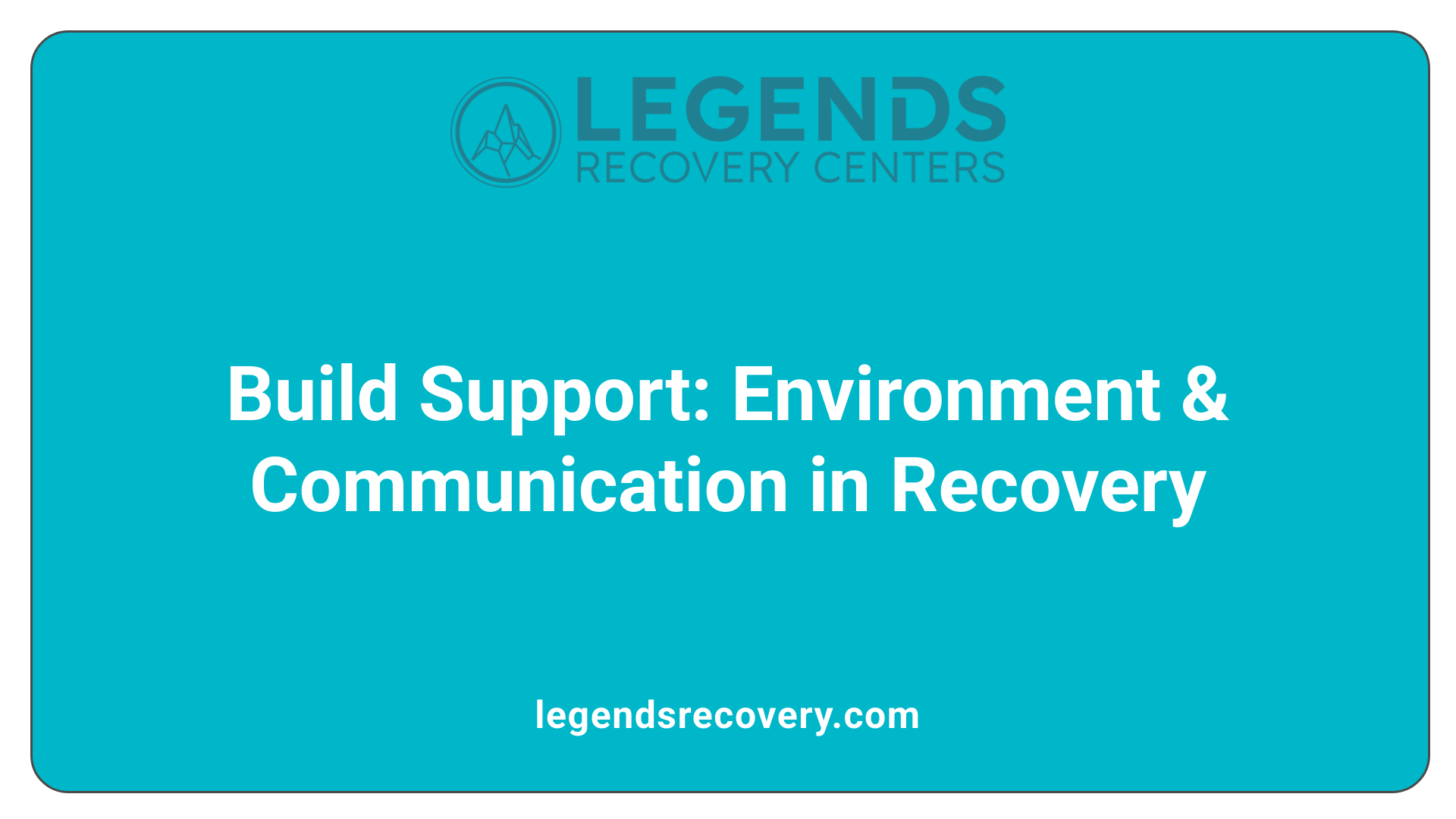
Effective communication is crucial in supporting a loved one’s journey to sobriety. One of the most helpful strategies is practicing active listening, which involves giving full attention to what the individual is saying without interrupting or judging. Showing genuine empathy and understanding helps in building trust, making your loved one feel safe and supported.
It’s also important to use honest yet respectful dialogue. Using 'I' statements, such as 'I am concerned about your health,' conveys your feelings without sounding accusatory. This approach encourages open conversations and reduces defensiveness.
Nonverbal cues—like maintaining eye contact, nodding in agreement, and open body language—can also reinforce your message of support. Being patient and non-judgmental fosters an environment where the person feels comfortable sharing their struggles and successes.
Setting clear boundaries and consistent communication reinforces respect and helps prevent misunderstandings. Sometimes, involving professionals through family therapy or support groups can enhance communication skills, providing tools to effectively navigate relationship challenges during recovery.
Overall, compassionate, honest, and patient communication is fundamental to creating a nurturing environment that encourages ongoing sobriety and emotional growth.
Supporting a loved one through detox and recovery requires compassion, patience, and education. It's essential to learn about addiction and the specific treatment options available, as this knowledge fosters empathy and better understanding of what the individual is experiencing.
Active listening and open communication create a trusting environment where the person feels safe to express their feelings and concerns. Encouraging healthy routines, such as balanced nutrition, physical activity, and regular sleep, can support their physical and emotional stability.
It's also important to set clear boundaries to avoid enabling harmful behaviors. Removing trigger items like alcohol or drugs from the home environment reduces temptation and stress. Supporting participation in support groups or therapy sessions can strengthen long-term recovery.
Equally vital is practicing self-care—supporters should manage their own stress and seek help when needed. Utilizing resources like the SAMHSA helpline or professional support networks offers additional guidance.
Finally, fostering an environment of compassion and respect boosts motivation and helps sustain recovery efforts. Celebrating small milestones and acknowledging progress reinforce positive change, making the journey toward sobriety more manageable.
Families and friends play a vital role in sustaining recovery beyond formal treatment. One of the most important actions is to actively encourage participation in ongoing counseling, support groups, and community-based programs. These resources provide continuous emotional backing and help prevent relapse.
Creating a safe, substance-free environment at home is crucial. This involves removing alcohol and drugs, and replacing them with positive items that foster a calm and supportive atmosphere. Encouraging healthy habits like regular exercise, balanced nutrition, and adequate sleep can significantly bolster mental and physical health during recovery.
Offering emotional support through active listening and positive reinforcement helps maintain motivation. Showing understanding and optimism reassures the loved one that they are supported and valued, which is essential during challenging times.
It is equally important to avoid enabling behaviors, such as providing substances or excusing harmful habits. Supporting independence and respecting boundaries contribute to a sustainable recovery environment.
Involving the individual in social activities and community events can boost their confidence and sense of normalcy. Recognizing that setbacks or relapses may occur as part of the process allows families to respond with patience and compassion.
Accessing community resources and participating in local support groups like Al-Anon or Nar-Anon can strengthen the support network, offering shared experiences and practical advice. These efforts collectively help weave a strong safety net that sustains long-term sobriety and emotional well-being.
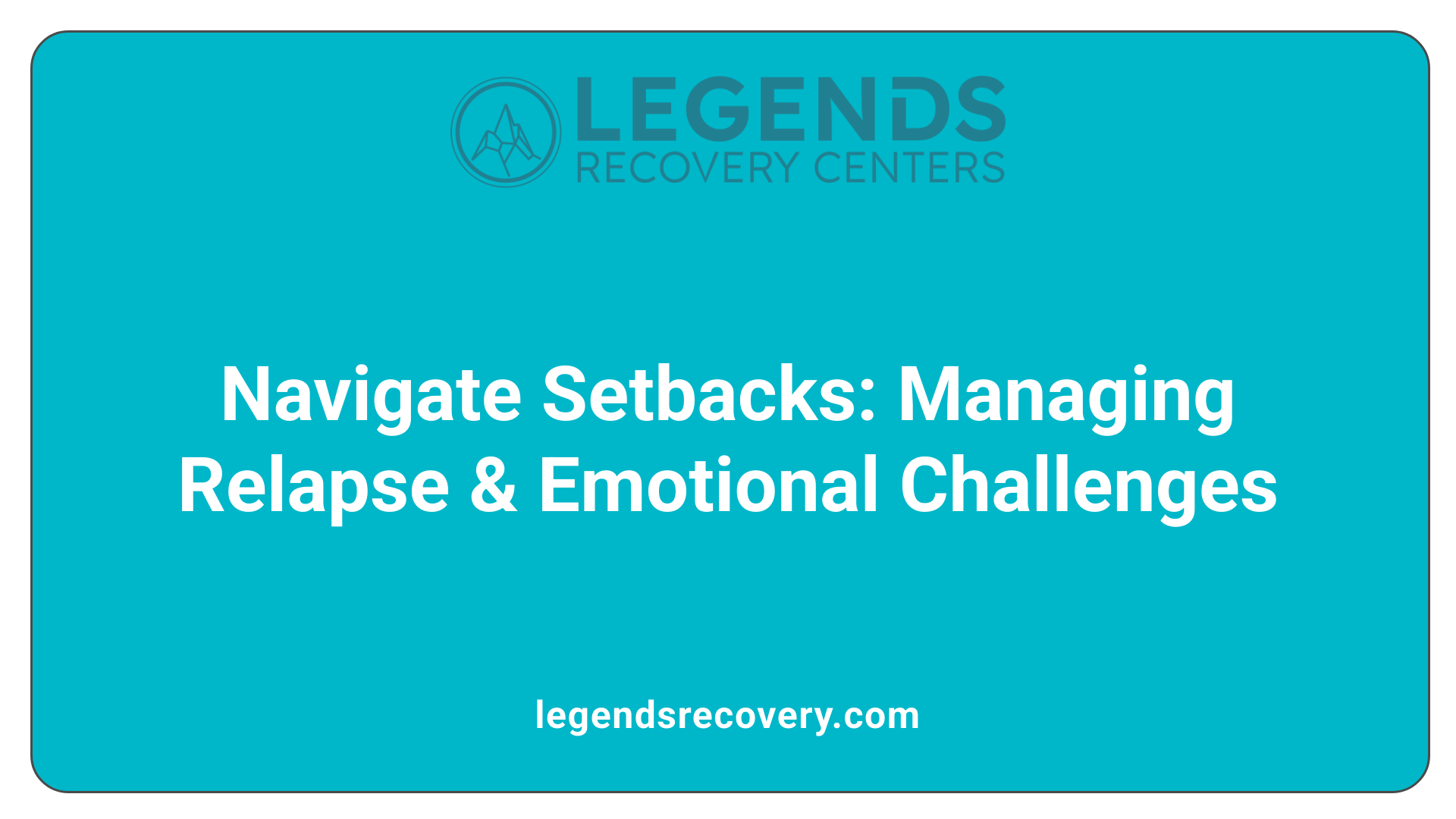
Relapse is a common experience for many individuals working toward sobriety. It doesn’t mean failure but rather a temporary setback in the recovery journey. Understanding that relapse can happen helps reduce feelings of guilt or shame, making it easier to recover and persist.
When setbacks occur, the most important step is to support your loved one with compassion and understanding. Encourage them to seek professional help if needed and remind them that recovery is a gradual process. Reinforce the importance of continued treatment, like counseling or attendance at support groups.
If relapse episodes are frequent or severe, or if emotional distress becomes overwhelming, it’s crucial to consult mental health professionals. These specialists can provide tailored strategies and support to help individuals navigate their challenges safely.
Continued engagement with therapy, support groups, and community resources plays a vital role in maintaining sobriety. Building a strong network of support—whether through family, friends, or professional services—can help reinforce positive habits and address underlying issues that may trigger relapse.
Searching for "managing relapse and setbacks" can lead you to helpful articles, therapy programs, and community support options tailored to addiction recovery. Reaching out to organizations like SAMHSA’s National Helpline can also connect you with free, confidential support services to assist both your loved one and yourself in this journey.
Supporting a loved one through detox and rehab is a compassionate journey that combines education, patience, and proactive engagement. By understanding the detox process, recognizing signs and triggers, communicating effectively, and promoting ongoing treatment and healthy habits, family and friends can significantly influence long-term recovery. Leveraging resources such as SAMHSA’s National Helpline and community support groups empowers both supporters and the recovering individual. Remember, recovery is a continuous process, requiring resilience, empathy, and unwavering support. Your active involvement and encouragement can be instrumental in helping your loved one achieve and maintain lasting sobriety.